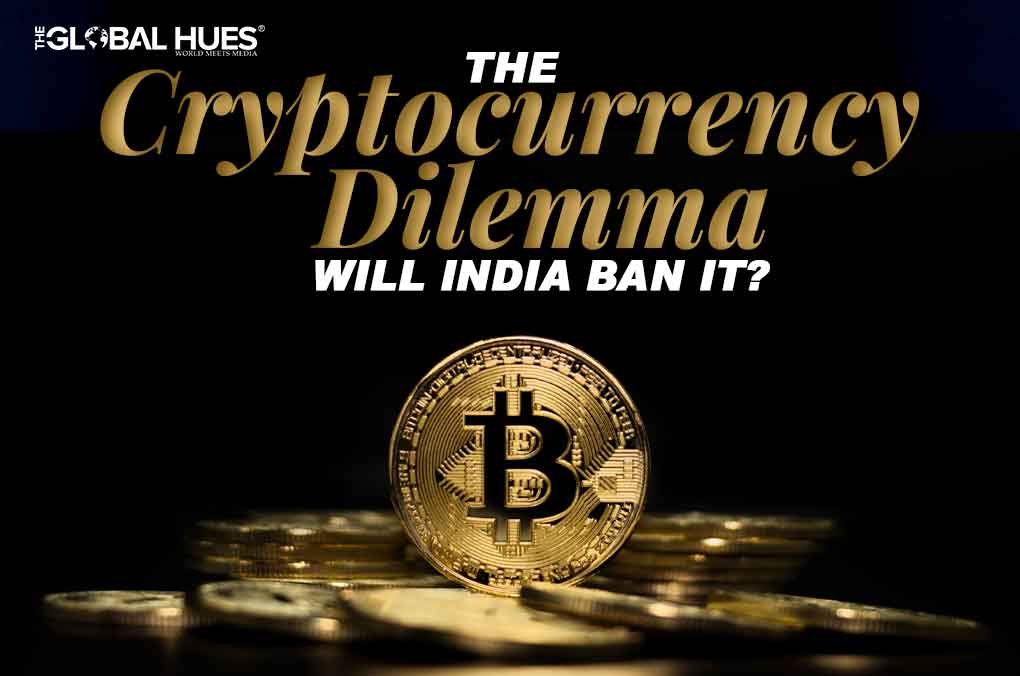Being in the spotlight, Cryptocurrency is still a mystery for many. One cannot find a solid opinion in its favour or against it. Even after so many years of its existence, opinion is divided on the legitimacy of Cryptocurrency and its uses. On one hand, Crypto ignites the sparks among tech enthusiasts and young investors but on the other hand, it also raises suspicion among the governments of many countries about its credibility.
Countries like Bolivia, Qatar, Russia and Morocco banned Crypto from the country by highlighting its threat to financial stability. The Indian Government also does not seem to be in favour of crypto either. Is Cryptocurrency so dangerous that countries are banning it and taking steps against it?
If you are planning to invest in crypto, it is very important for you that you understand it thoroughly. In this article, we will start with the basic concept of understanding Cryptocurrency first and then we will proceed with why countries are banning it.
THE EVOLUTION OF CRYPTOCURRENCY
Cryptocurrency is a digital or virtual currency that is decentralised and makes payments secure by using blockchain technology. The origin of cryptocurrency was said to be in 2009. But it is recently that crypto gained its popularity and mainstream acceptance. Defying the traditional payment system, cryptocurrency is said to be the next big thing in the financial world.
A decentralised currency refers to a currency that cannot be controlled by any one organisation or governmental body. Many tech enthusiasts and investing experts believe that the cryptographic code and decentralised network of cryptocurrency give it the potential to rise as a safe, secure and fast mode of payment. It also has the potential to reach the untapped market of investment.
But if everything seems so perfect, why are some countries emphasising banning it? The governmental authorities are speculative about the volatility of bitcoins. Governments are of the opinion that the prices of bitcoin fluctuate very sharply because it depends majorly on investor speculation and media hype. The world has seen various crypto crash cases in which investors faced huge losses.
Also Read: How is RBI’s Digital Currency Different From Cryptocurrency And UPI?
COUNTRIES WHERE CRYPTO IS BANNED
Facing the heat of criticism due to its volatile nature, many countries have imposed an implicit ban on bitcoins or any other cryptocurrency. The list of nations that banned cryptocurrency includes China, Russia, Algeria, Bangladesh, Bolivia, Colombia, Indonesia and many more.
The monetary authority of Singapore has broadened its regulations on crypto to keep it in check and prevent any financial crisis because of it. Currently, Singapore considers bitcoins as property but not as legal tender. The United States has also created a framework to expand the regulations on crypto further. Many American experts believe that crypto markets are not compatible with securities laws. Therefore, it is necessary to keep regulating it with strict measures.
INDIA’S TAKE ON CRYPTOCURRENCY
The journey of crypto started in 2013. It started getting popular in the Indian market but it did not get any support from the Central Government or the Reserve Bank Of India (RBI). In April 2018, RBI warned people about the use of crypto and stated that “virtual currencies are not legal tender in India”. The Finance Ministry of India also formed a committee to formulate a bill regarding cryptocurrency.
In 2019, a bill was passed according to which using, holding, mining, and transferring cryptocurrency comes under a punishable offence with a fine or imprisonment of up to 10 years or both in some cases. However, this ban was lifted in 2020 after the orders of the Supreme Court of India. Finance Minister, Nirmala Sitharaman notified in Rajya Sabha in 2021 that the government is not taking any concrete steps to ban crypto but working to create awareness about its uses.
And finally, in the Union Budget 2022-2023, the government of India levied a 30% tax on the transfer of any virtual currency. Many investors believe this is the first step by the government to recognise the legitimacy of crypto. But the government constantly denies its credibility and legitimacy.
The Governor of RBI, Shaktikanta Das is of the opinion that cryptocurrency should be completely banned from the country and it can just be called gambling. Shantikanta believes that the demand for crypto is based on the make-believe factor. In the words of Shantikanta, “Crypto is a form of gambling without any underlying value and is nothing but a 100 per cent speculation world.”
IS BANNING CRYPTOCURRENCY A SOLUTION?
Despite all the controversies, India is a budding market for cryptocurrency. The country has around 115 million crypto investors who are investing in the company. If the government bans crypto outrightly, then these investors would have to face huge losses. People are investing in crypto keeping high hopes that the government will legalise it soon and will accept it as a valid medium of financial exchange.
There is also the possibility that banning crypto in the country may also lead to the illegitimate use and black marketing of bitcoins. This is why the Finance Ministry of India is taking preventive measures to control the use of crypto while maintaining the sanity of the market.
Important Note: The reader is advised to do his or her own due research and diligence before investing in cryptocurrency or crypto assets. No investment of such kind is endorsed by Global Hues.



